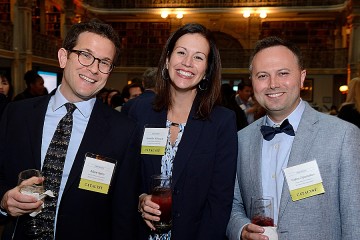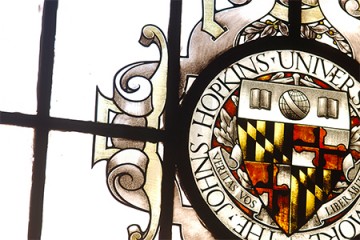Since 2015, 105 early-career scholars at Johns Hopkins University have been presented with Catalyst Awards and 73 cross-divisional teams have received Discovery Awards to support their research. Today, JHU President Ronald J. Daniels and Provost Sunil Kumar, together with 12 deans and directors, announced they will extend both programs with another $15 million commitment over three years.
Since the first $15 million investment was announced, those funds have supported projects involving drones delivering blood samples over difficult terrain, a spray-on coating to harvest solar energy, a documentary about female orchestra conductors, and simulating the atmospheres of exoplanets to predict their habitability. Winners have also investigated causes and treatments for depression, stroke, cancer, rheumatoid arthritis, HIV, opioid addiction, Alzheimer's disease, and other urgent health issues.
"We recognized the need for our university to play a key role in sustaining faculty as they pursue previously unexplored questions with the potential to change disciplines and impact lives," the university leaders wrote in a message to the JHU community today. "We are thrilled to renew this support for our highly talented and creative faculty."
Applications for the next round of Catalyst Awards are due March 16. Full-time faculty with more than three and less than 10 years in a tenure-track position can apply for up to $75,000 to support exceptional research or creative endeavors. Discovery Award applications will be accepted through March 23. Those awards of up to $100,000 support cross-university faculty teams while they seek an externally funded grant or cooperative agreement.
More information and a link to the application can be found on the Office of the Provost website.
"I am absolutely delighted that these programs have been extended for three more years," says Denis Wirtz, JHU's vice provost for research. "As we looked back over the achievements of the recent awardees, we were so impressed by how our faculty and research staff have used the awards to break new boundaries, initiate new partnerships, and launch their careers. It will be exciting to see what our community dreams up next."
Posted in University News










